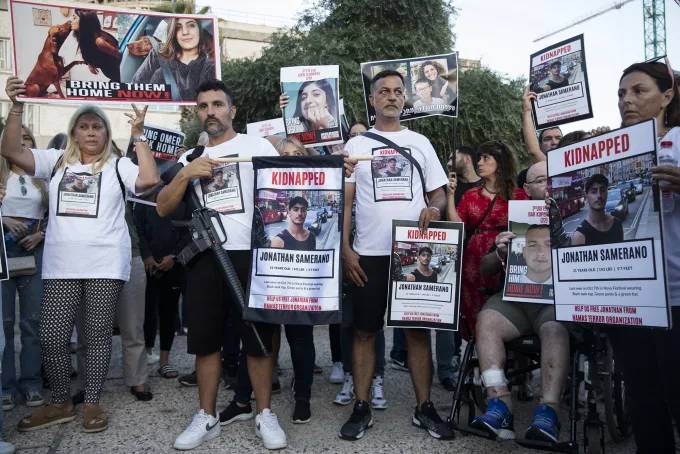There has been "significant progress" in negotiations led by Qatar to release hostages held by Hamas, but there are still some challenges that need to be addressed, according to diplomatic sources familiar with the ongoing talks, as reported by CNN.
"Negotiations are going very well. We have taken a step forward," one source mentioned, providing some optimism regarding the situation. However, they also acknowledged that there are remaining issues that need to be resolved. Despite these challenges, talks continue, and the parties involved remain hopeful.
The United States Assistant Secretary of State for Near East Affairs, Barbara Leaf, is currently in Doha for meetings with Qatar's leadership, a source familiar with the meetings confirmed. This suggests that the United States is actively involved in the negotiations and is closely monitoring the situation.
A U.S. official shared their perspective with CNN, stating that there has been progress regarding the hostages but cautioning that it is still "fluid and ongoing." They emphasized the need to approach the situation with caution and not jump to conclusions about a major breakthrough.
When asked about the status of the negotiations, Israel's Defense Minister, Yoav Gallant, commented during a news conference that "every channel is a potential channel." He affirmed the commitment of Israel and the Israel Defense Forces (IDF) to make every effort to bring the hostages and missing individuals back safely.
The hostage situation originated when Hamas, a Palestinian militant group, kidnapped over 200 people and tragically killed 1,400 others, including both soldiers and civilians, in southern Israel on October 7. The hostages encompass nationals from various countries, including Mexico, Brazil, the United States, Germany, and Thailand, in addition to Israeli civilians and soldiers. This large-scale incursion marked the deadliest attack by militants in Israel's 75-year history, and it prompted significant criticism of Israeli authorities for not having been able to prevent it.
In response to the attack, Israel launched a substantial bombardment of Gaza and imposed a complete blockade on the enclave. These actions have resulted in the deaths of at least 7,028 Palestinians, including 2,913 children, according to a report from the Hamas-controlled Palestinian Ministry of Health. Additionally, around 1,600 people are still missing under the debris of destroyed buildings, with many of them feared to be deceased. The ministry expressed concern that the actual death toll in Gaza is likely much higher than the reported figures.
Human Rights Watch issued a statement on Monday, characterizing Israel's actions as "collective punishment" of Palestinians in Gaza, which it considers a potential war crime.
Qatar and Egypt have been actively mediating between Israel, the United States, and Hamas to secure the release of the hostages held by the militant group. So far, four hostages, including two Americans and two Israelis, have been successfully freed through these negotiations.
On Wednesday, Israeli Prime Minister Benjamin Netanyahu publicly acknowledged the need to provide answers regarding his government's intelligence failures leading up to the October 7 attack. This marked the first time he personally addressed his role in the security breakdown.
As the situation continues to evolve, it is important to remain updated with the latest developments regarding these negotiations and the release of the hostages. The involvement of international parties and diplomatic efforts remain crucial in addressing this complex and sensitive issue.




No comments yet
Be the first to share your thoughts!